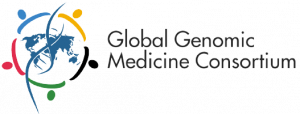The Lancet Publishes Series of 5 Papers Featuring Several G2MC Members
The Lancet has recently published five, timely reviews of the clinical insights and avenues of exploration within the growing area of genomic medicine. This series presents an overview of efforts to implement genomic medicine, including contemporary tools and resources; the role of pharmacogenomics in drug safety and efficacy; the application of genomics to identifying rare and undiagnosed diseases; enhancing risk assessment through family health history records; and improving the collection of outcomes and evidence to better incorporate genomic techniques in clinical care. G2MC is pleased that our members are included in the authorship list – notably Teri Manolio, Marc Williams, Geoff Ginsburg, Howard McLeod, Mary Relling, Laura Lyman Rodriguez, Lori Orlando, and Ryanne Wu.
Genomic Medicine 1: Opportunities, resources and techniques for implementing genomics in clinical care describes the major types and measurement tools of genomic variation that are currently of clinical importance, reviews approaches to interpreting genomic sequence variants, identifies publicly available tools and resources for genomic test interpretation, and discusses several key barriers in using genomic information in routine clinical practice.
Genomic Medicine 2: Pharmacogenomics reviews general mechanisms underlying variability in drug action, the role of genetic variation in mediating beneficial and adverse effects through variable drug concentrations (pharmacokinetics) and drug actions (pharmacodynamics), available data from clinical trials, and ongoing efforts to implement pharmacogenetics in clinical practice.
Genomic Medicine 3: Genomic medicine for undiagnosed diseases focuses on the role of clinical genomic sequencing (exome and genome) in aiding patients with conditions that are undiagnosed even after extensive clinical evaluation and testing. In particular, it explores the impact of combining genomic and phenotypic data and integrating multiple data types to improve diagnoses for patients with undiagnosed diseases, and discusses how these genomic sequencing diagnoses could change clinical management.
Genomic Medicine 4: Family health history: Underused for actionable risk assessment discusses the importance of family health history as a tool for risk assessment for common chronic diseases.
Genomic Medicine 5: Building evidence and measuring clinical outcomes for genomic medicine reviews clinical outcome studies in genomic medicine and discusses the important features and key challenges to building evidence for next generation sequencing in the context of routine patient care.





